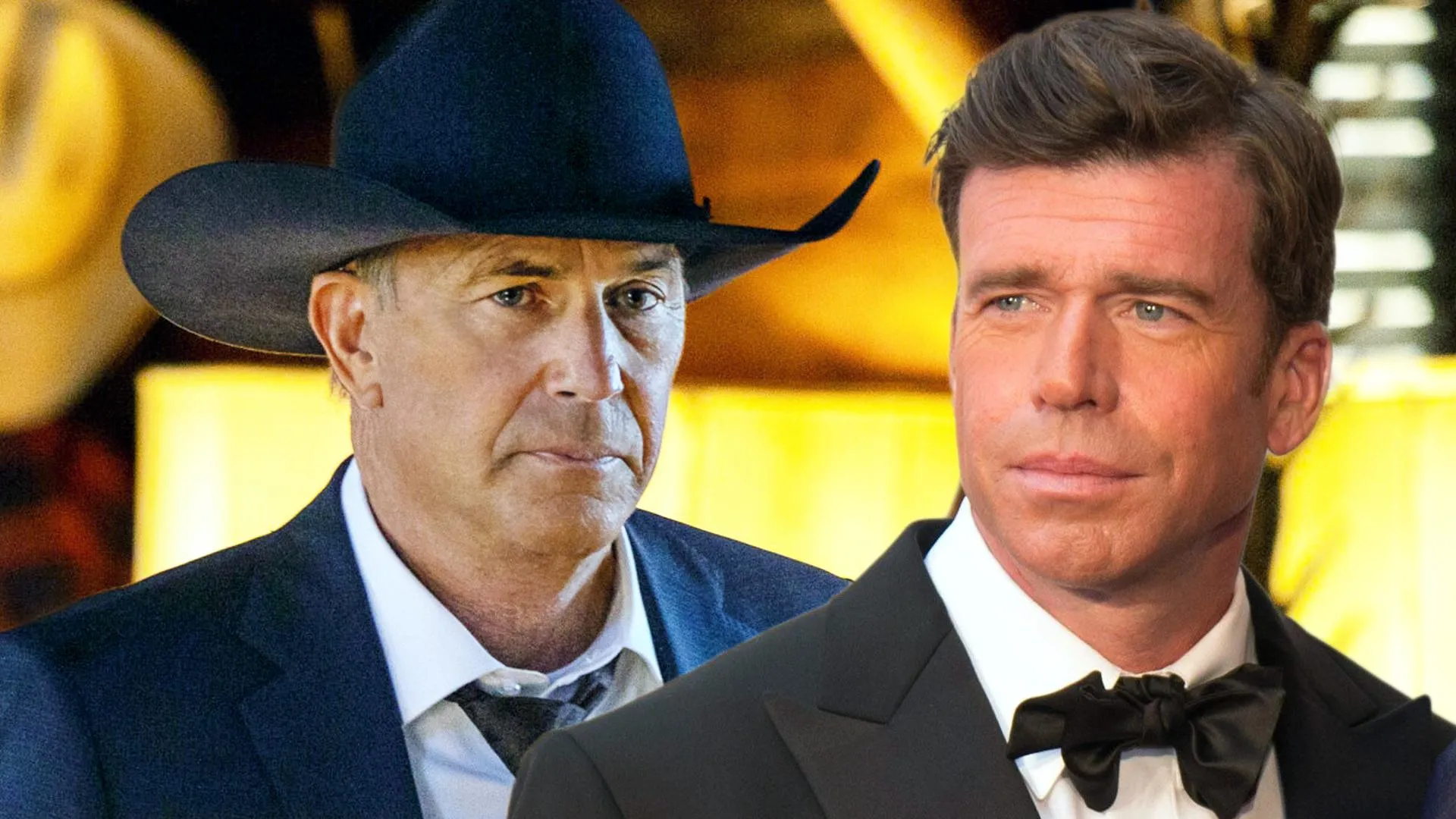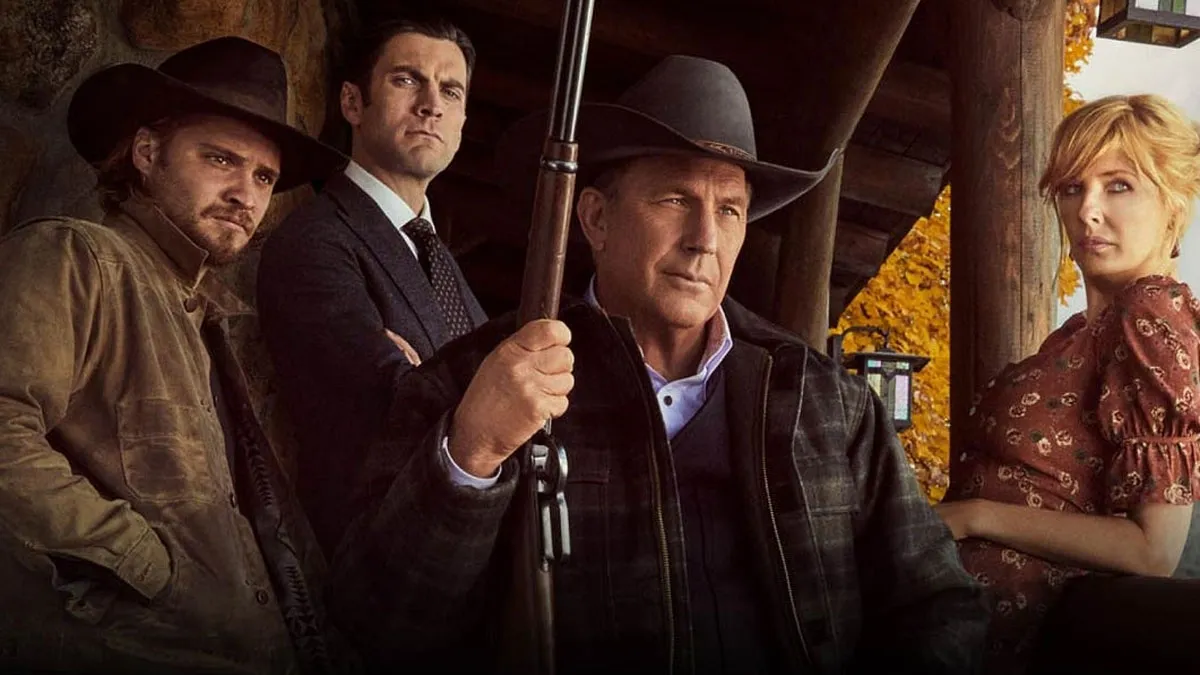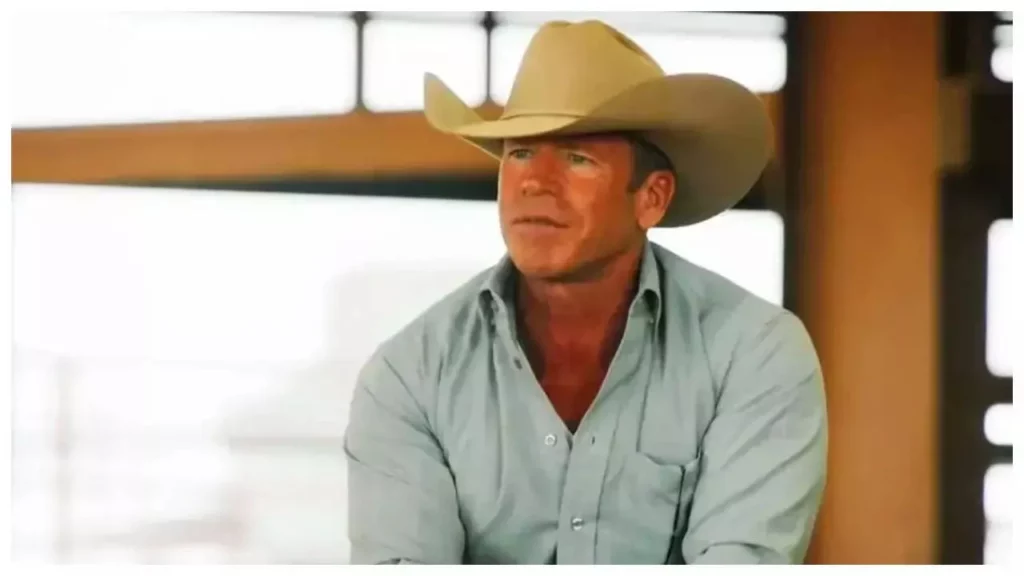Taylor Sheridan’s transformative approach to cinematic violence has redefined the landscape of modern Western dramas. Renowned for his unflinching realism in films such as Wind River and Hell or High Water, Sheridan’s penchant for portraying violence as jarring and abrupt has set new standards. But what if this same meticulous attention to the harsh reality of gunfights had been fully integrated into his television masterpiece, Yellowstone?

Imagining a Grittier Yellowstone
If Sheridan had brought this intense focus on realism to Yellowstone, the impact on the series’ portrayal of conflict might have been profound. The show, already known for its dramatic moments—like the shocking early death of Lee Dutton or the ruthless path of Kayce Dutton—could have reached new depths of visceral impact.
Picture the bunkhouse bar fights or the brutal beating of Beth Dutton, not just as plot devices, but as stark, raw confrontations that leave viewers as breathless as the characters involved. Sheridan’s vision could transform these scenes from scripted sequences to unpredictable and shocking displays of raw human survival.
The Impact of Reality on Viewer Engagement
This level of gritty realism could significantly alter viewer engagement, making each conflict not just a dramatic turn but a palpable, gritty experience. Audiences might not only anticipate the outcomes but feel the immediate danger and desperation that comes with real-life stakes. This could deepen the emotional resonance of the show, making every gunshot and every confrontation a moment of true consequence.

A Legacy of Uncompromising Realism
Taylor Sheridan’s commitment to authenticity in depicting violence has already left an indelible mark on cinema. His ability to weave complex narratives with brutally realistic depictions of violence offers a new lens through which to view the myths of the American West. “Like any other group they’re a people struggling to survive,” Sheridan explained, underscoring the foundational struggles that drive his narratives.
By potentially infusing Yellowstone with this raw, unembellished ethos, Sheridan could have offered an even more striking commentary on the rugged realities of the modern-day frontier. This approach would not only elevate the narrative but also set a new standard for realism in television, challenging viewers to confront the unsettling truths behind the drama.
In essence, if Taylor Sheridan’s hallmark realism were more deeply embedded into the gunfights of Yellowstone, the show might have transformed into an even more powerful mirror reflecting the dark, often painful truths of life and survival in the American West. As Yellowstone continues to captivate and influence, one can only imagine how much more impactful it could be with an even grittier, more realistic portrayal of its central conflicts.

